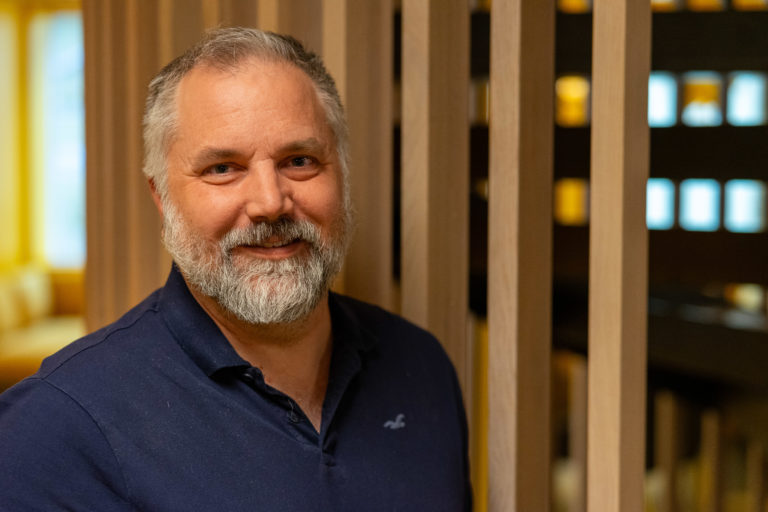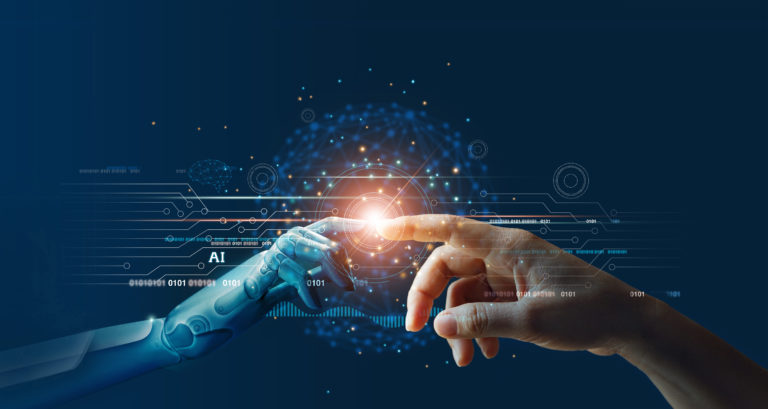Google Cloud Next in San Francisco: – Barely scratching the surface of what AI will mean
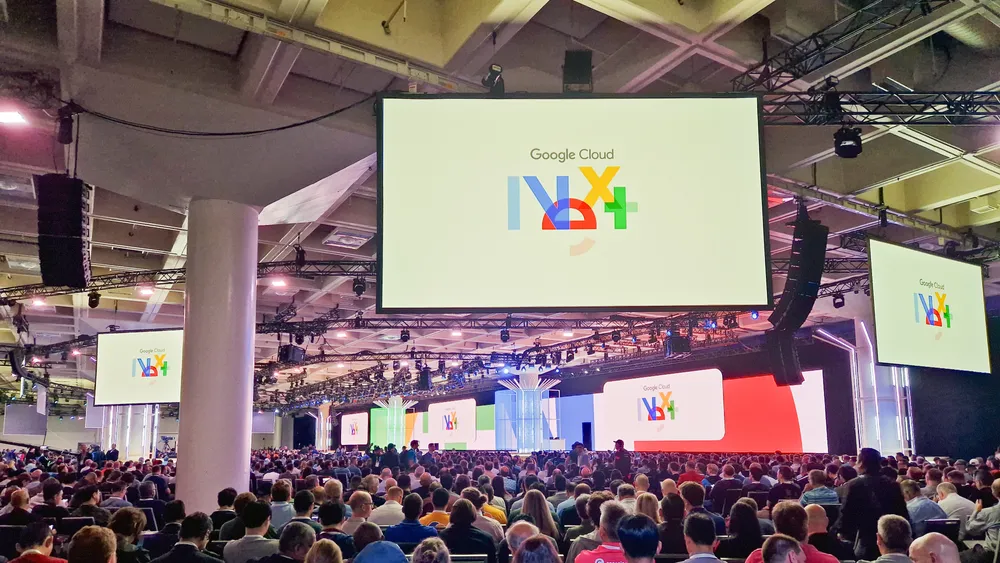
AI assistants that take you on virtual shopping trips, AI assistants that generate fancy reports in the blink of an eye, AI assistants with specialized expertise in your field becoming valuable work partners. These are just some of the technologies that tech giants like Google are bringing forward. And before you know it, what’s just around the corner may become old news.
“I had the same feeling as when the first iPhone came out and the first Tesla. This is a game changer. Generative AI permeated everything. But how revolutionary it will be, we won’t know until we look back in five years,” says Morten Forfang, Chief Technology Officer at Computas, summarizing his impressions from this year’s Google Cloud Next in San Francisco. After a COVID-related pause, the conference was held in person for the first time since 2019 in late August.
“It’s like a candy store with many great presentations and incredibly interesting topics. Plus, people were incredibly friendly and positive. But some of the demos were enough to make both large and small suppliers tremble at the thought of what’s coming. More and more tasks will be solvable in entirely new ways.”
From the massive halls to the intimate booths, there was an energizing buzz of curiosity and innovation everywhere. The common denominator: Artificial Intelligence.
“Seventy years ago, Alan Turing created the Turing Test to determine whether a computer is truly intelligent or not. Many would say that test was passed in 2022. It’s a whole new world, even though we’re just scratching the surface of what AI will come to mean.”
I had the same feeling as when the first iPhone came out and the first Tesla. This is a game changer.
Morten Forfang, Director of Cloud Technology at Computas
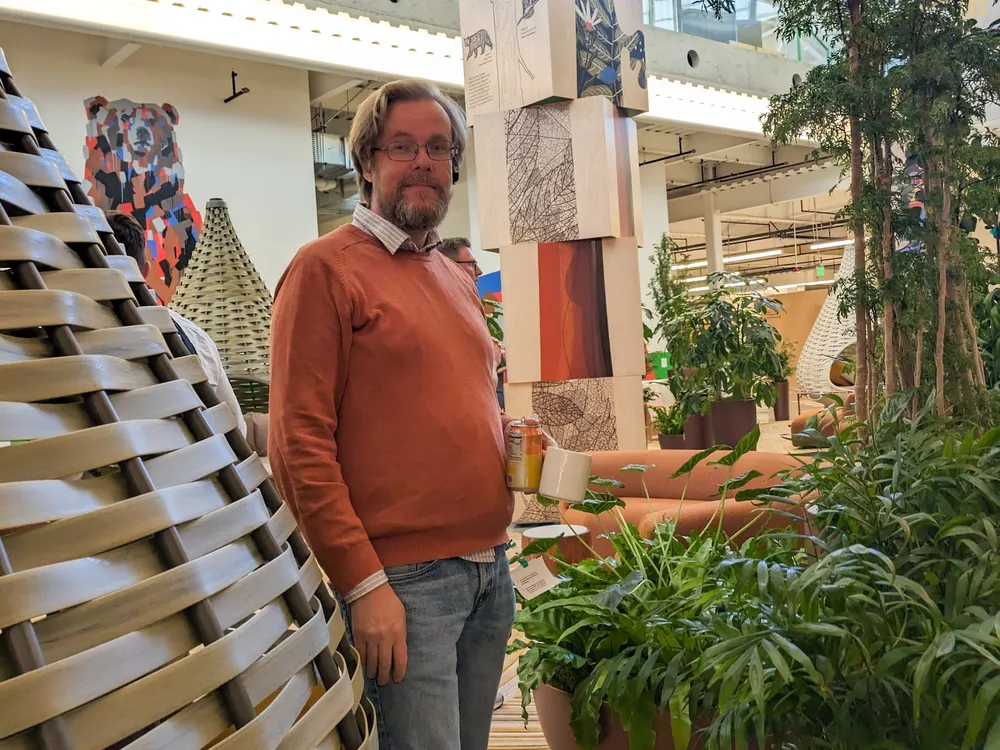
Changing Power Dynamics
AI development is happening so quickly that it can be challenging to keep up.
“What I said about ‘large language models’ or ‘prompt engineering’ in January, March, or May is outdated because changes are happening so fast. This is a field in tremendous flux.”
The power dynamics among the major players are changing just as swiftly. Forfang notes that just a few months ago, OpenAI was leading with ChatGPT, while Google was playing catch-up.
“We’ve tested the Palm 2 family, which are the underlying models Google uses, and they’ve gone from being unacceptable to a point where it’s hard to say whether GPT or Palm is better,” he says.
The pace of technological change presents several challenges when it comes to building services.
“Google is working a lot on the service offering and the ability to add local data for searches,” says Forfang.
“Our experience, both internally and with what we’ve done for clients, is that you should choose a managed or customized solution based on your needs. For some, a managed generative AI product like Google’s Vertex AI Search and Conversation may fit, while others may find it better to build their own services on top of the large language models, such as Google’s Palm 2.”
Who is the new shopping assistant?
Regarding the future of user interfaces, Forfang envisions a revolution.
“Historically, you could search for products in an online store and add them to your cart. When you go to a physical store and talk to a salesperson, it’s a completely different experience. The linguistic aspect is much more important, in addition to seeing the actual product. Over time, many established conventions of interacting with machines will be swept away.”
But with all the benefits AI brings, there are also challenges. Privacy is among the most pressing.
“You can have a user interface that feels like talking to your best friend. The bot you’re talking to knows a lot about you and your preferences, which is both good and a bit scary. When everything is mixed into a big pot, it’s challenging from both a marketing and a privacy perspective,” Forfang points out.
Even if you feel like you know your new online shopping assistant, it’s not always clear who she actually is.
“When she says a particular bike is great, you have to wonder where that information comes from. Is it from Wikipedia, Reddit, or is it paid advertising? It gets especially difficult when everything is intertwined; is this clause from here or there? How do you navigate that?”
Forfang emphasizes that a technological upheaval always entails significant upsides and downsides.
“There’s usually a period of trial and error before things settle down. Right now, no one knows how the cards will fall – what will stick and what will be forgotten in six months.”
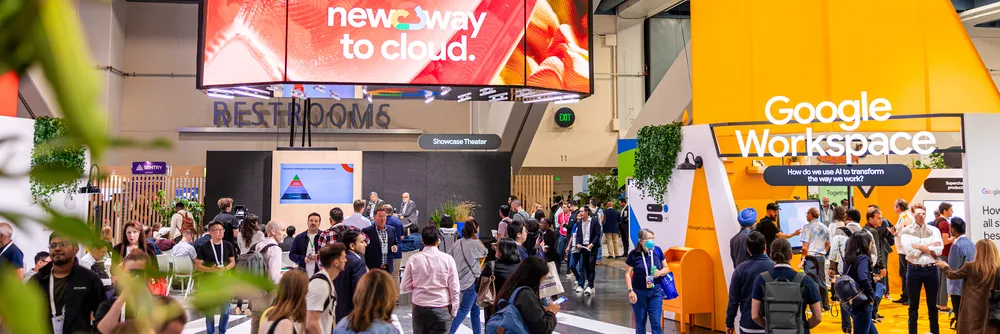
Greater AI Specialization
During the opening of the San Francisco conference, the focus was on Duet AI for Google Workspace. This is an area where AI can make a significant difference in the short term.
“Both Microsoft and Google are heavily investing in integrating generative AI into their productivity suites, in emails, documents, presentations, and reports,” says Forfang, continuing:
“If you have a department head who needs to create a report with some pie charts, you can quickly have AI do it. In general, translating text or speech into structured information will make a difference for many,” Forfang says.
He emphasizes that Google is aware of the importance of allowing data processing and storage location selection in the EU and EEA, in accordance with GDPR.
“There has also been movement on the regulatory side, so this issue is less challenging now than it used to be.”
In a slightly longer-term perspective, Forfang envisions greater specialization of AI models.
“Google launched the security version of Palm 2, which specializes in security challenges, and then you have the upcoming Med-Palm, which is excellent for medicine. One can imagine a development where it’s as if you get a new sparring partner at work who is a lawyer or a nurse.
The question is whether you can trust that they are not biased in one direction or another, that your sparring partner isn’t bought and paid for or partisan.
“With this also comes the need to know something about how the model is created and where it comes from.”
In conclusion, Forfang encourages Norwegian actors to delve deeper into the world of AI.
“Play with it, find a case where using AI feels meaningful. Along the way, you’ll learn a lot about the possibilities and limitations. Then it’s easier to see where you can reap rewards.”
